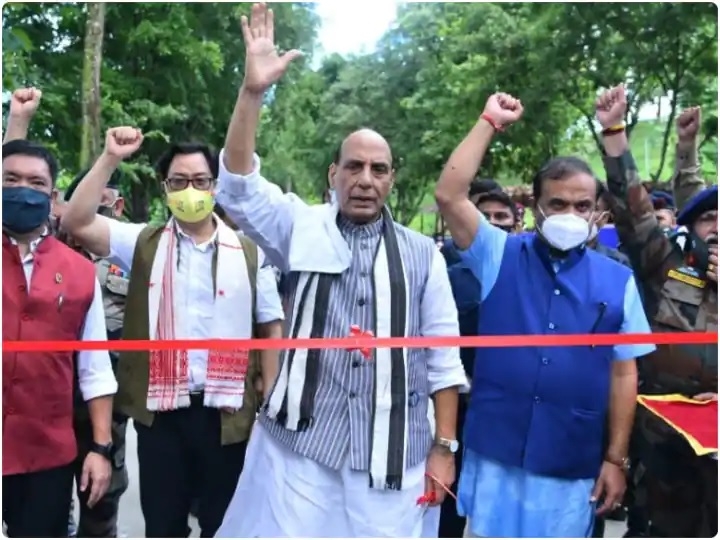priest of
| Date :19-Jun-2021 |

MINISTER of Defence Mr. Rajnath Singh has used very appropriate words to describe India’s role in the world -- Priest of Peace! As he dedicated to the nation the all-weather Kimin-Potin road in Assam’s Lakhimpur district to mark the country’s renewed push to infrastructure in forward areas, Mr. Rajnath Singh asserted that all effort is directed to improve the strategic standards so that any enemy can be repulsed if he tries a misadventure against India. But what is important is the role India has assigned to itself in the global arena -- that of the promoting peace as the only way to attain a comprehensive and unhindered procession of human community toward lasting prosperity.
There is little doubt that Mr. Rajnath Singh was not talking poetry. Much to the contrary, he was talking about the understanding of an ugly reality of how the world has always saluted strength. So, India pursues that goal -- of great strategic and operational capability to defend its integrity and sovereignty. And development of infrastructure in forward areas is an integral part of that massive national effort. No matter all this, India does not confuse defence-preparedness with war-mongering. Much to the contrary, India believes fundamentally in peace as the essential condition of the collective well being of the larger human community beyond national borders.
This is what India has stood for since ancient times -- talking of ‘one world, one family’ -- Vasudheiva Kutumbakam -- in which all members have the right and opportunity to pursue their respective goals basking in peace and togetherness. This was what even the United Nations aimed at when it formed itself seventy-five-plus years ago. All along, India has never strayed from that ideal -- becoming an abiding partner in progress as the world tackled countless issues of commission and omission. The most critical Indian endeavour was -- since Independence -- to ensure that it did not become a problem on any count.
Unfortunately, however, this goodwill had little value as India’s neighbours kept haranguing it with avoidable issues. India’s leadership at the time of Independence had never anticipated such a world, such a neighbourhood. So naive did it prove to be that Prime Minister Pandit Jawaharlal Nehru went into a shock following Chinese aggression of 1962 -- and passed his last years in ill-health on that account.
But it must be said that India was quick to learn right lessons -- which was proved in just three years when the country repulsed the Pakistani aggression in 1965, and then tore the neighbour into two different countries in 1971. It also conducted nuclear tests and built its military machine in an unprecedented manner. despite all that, the leadership remained more or less diffident on security issues and allowed the neighbour to dominate the regional discourse to a big extent.
Fortunately, that changed dramatically in the last few years. India’s defence-preparedness is now being hailed by the world as very assertive, good enough for any belligerent neighbour to remain within restraint. And that is how India now can speak of peace as a matter of earned right -- resulting in a change of tone and tenor of security conversation in the region and the world.
This is how we must decipher the statement of Mr. Rajnath Singh when he asserts that India is a priest of global peace. India has earned this honorific sobriquet by virtue of its current foreign policy and international relations stance. Even as it pursue peace as an essential condition of internationalism, India has communicated to the world that it would not mind going full distance in protecting its interests -- as a matter of philosophical belief that peace is possible only on the basis of strength.
True, India’s neighbours -- China and Pakistan in particular -- are yet to realise and recognise this aspect of New India’s personality. That is why they kept needling India time and again -- though much to their own distress. Yes, India has to pay a heavy price for this position of strength. But then, who said ever that peace has no price. It has, and that price, again, is essential to collective human progress in the world.